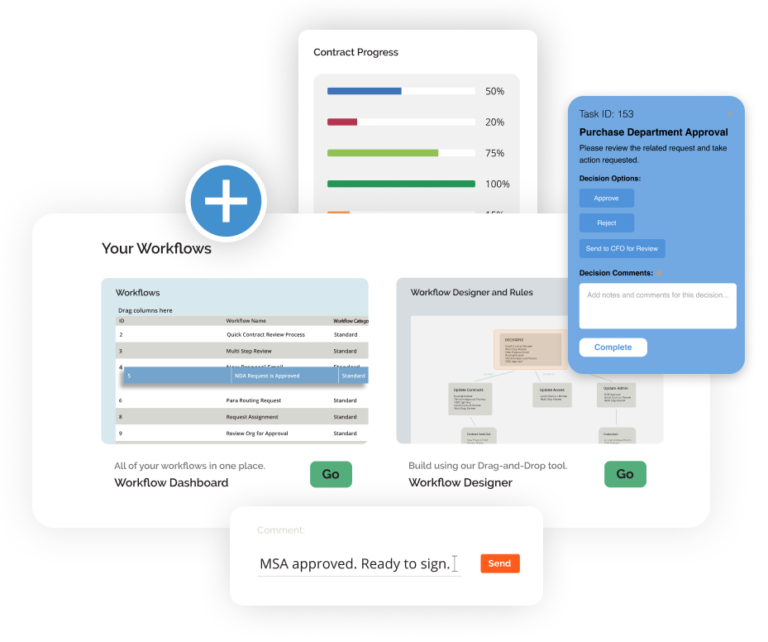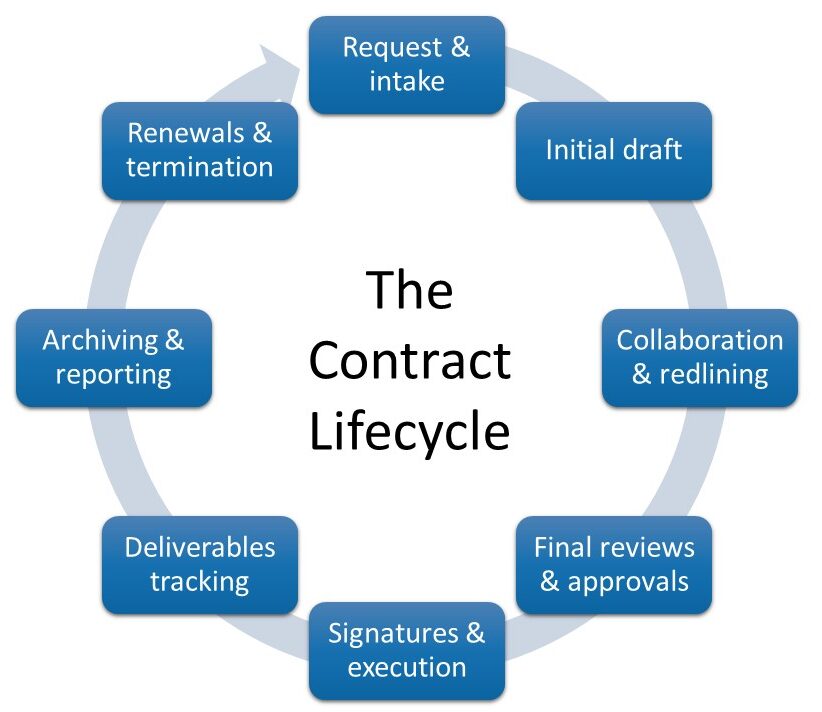Getting Started with Managed Services for Contract Operations: A Beginner’s Guide
Contract operations sit at the center of business performance, influencing risk management, revenue generation, and compliance. Yet many organizations struggle with resource constraints, outdated processes, and rising regulatory demands.
To address these challenges, more teams are adopting managed services for contract operations. These services combine expertise, technology, and ongoing support to improve efficiency and reduce risk across contract lifecycle management. This guide explores what managed services entail, why organizations choose them, and the steps you can take to get started.
Quick Takeaways
- Managed services for contract operations provide scalable support across contract lifecycle management.
- Organizations gain efficiency, compliance, and stronger governance through automation and expert support.
- Different stakeholders benefit—from legal, procurement, finance, and executive teams—reducing workload, gaining visibility and insights.
- Getting started requires assessing current processes, defining goals, choosing a partner, and tracking results.
Learn how Contract Logix helps organizations streamline contract operations with managed services by downloading our guide Top 10 Best Practices for Contract Management.
What Are Managed Services for Contract Operations?
Managed services for contract operations involve outsourcing specialized contract management processes to a dedicated partner that provides technology, expertise, and operational support. Instead of relying solely on internal teams, organizations gain access to a service model that handles critical contract functions such as:
- CLM implementation
- Workflow automation
- Compliance monitoring
- Data extraction
- Reporting
Unlike traditional in-house approaches, managed services scale with organizational needs and provide continuous improvements without adding headcount. Providers deliver best practices and advanced tools that help cross-functional teams manage obligations effectively while maintaining strong governance. The result is a streamlined process that saves time and ensures accuracy across every stage of the contract lifecycle management.
Why Organizations Choose Managed Services
Organizations adopt managed services for contract operations to address several persistent CLM challenges:
- Cost efficiency: By reducing administrative overhead, businesses lower the total cost of contract management. Automation eliminates repetitive tasks and frees teams to focus on strategic priorities.
- Specialized expertise: Providers bring deep knowledge in procurement, legal, and compliance operations that internal teams may not have the capacity to develop.
- Scalability: Managed services adapt to growth, acquisition, or regulatory changes, ensuring contract operations remain consistent as business needs evolve.
- Data security and audit readiness: Providers offer secure environments, detailed audit trails, and compliance features that strengthen accountability.
Together, these benefits allow organizations to modernize their contract management without overburdening internal staff or straining budgets.
Core Functions of Managed Services for Contract Operations
Managed services encompass several key functions that directly improve contract efficiency, accuracy, and oversight:
Contract Workflow Automation
Manual approval chains and document routing often slow down contract cycles. Managed services automate these steps, providing structured workflows for authoring, negotiation, review, and execution. Features such as automated eSignature, renewal notifications, and approval routing ensure deadlines are met consistently. This reduces bottlenecks and improves accountability across departments.
Data Accuracy and Analytics
Inconsistent or incomplete contract metadata leads to poor visibility and higher risk. Managed services leverage AI-driven tools to extract, validate, and normalize contract data at scale. This enables reporting on key metrics such as cycle times, renewal rates, and compliance adherence. With accurate data, organizations can make faster, better-informed business decisions.
Compliance and Risk Management
Regulatory compliance and contractual obligations demand constant monitoring. Managed services establish automated alerts for key dates, embed policy checks into workflows, and maintain audit trails that stand up to regulatory scrutiny. By systematically tracking obligations, organizations reduce the likelihood of penalties and build stronger governance frameworks.
For instance, financial services organizations gain peace of mind with automated audit trails that satisfy HIPAA, FISMA, SOX, and other regulatory requirements.
Integration with Business Applications
Contract data should not exist in silos. Managed services often provide seamless integration with ERP, CRM, HRMS, and eSignature tools. This ensures information flows across systems, eliminates duplicate data entry, and aligns contract operations with broader business processes.
For example, procurement teams gain real-time contract visibility in ERP systems while sales teams access executed agreements directly through CRM platforms.

Benefits for Different Stakeholders
The advantages of managed services for contract operations extend across the organization:
- Legal teams: Reduce manual authoring and review tasks, improve accuracy, and ensure regulatory compliance.
- Procurement and finance: Gain visibility into spend, vendor performance, and obligation management, improving cost control.
- Executives: Leverage dashboards and analytics to monitor performance and guide strategic decisions.
- Buyers and sellers: Experience faster negotiations and fewer errors, resulting in stronger business relationships.
Each group benefits from greater efficiency and confidence in the accuracy of contract data.
Getting Started: Steps to Adopt Managed Services for Contract Operations
Implementing managed services requires careful planning to align with organizational objectives and ensure a smooth transition. These steps provide a roadmap:
1. Assess Current Contract Operations
Conduct a thorough evaluation of your existing processes. Look for delays in approvals, missing audit trails, data inconsistencies, and compliance gaps. Identifying these pain points highlights where managed services can deliver the greatest impact.
2. Define Goals and KPIs
Establish clear performance benchmarks before implementation. Goals might include reducing contract cycle times by a set percentage, improving compliance reporting accuracy, or lowering administrative costs. These KPIs serve as measurable outcomes to track the value of managed services over time.
3. Select a Managed Services Partner
The right provider should offer more than technology. Evaluate potential partners based on their experience with organizations in your sector, the scalability of their services, integration capabilities, and the level of ongoing support provided. Strong providers act as strategic partners, not just vendors.
4. Plan Implementation
A phased rollout minimizes disruption and allows for adjustments along the way. Start with high-priority contract types or workflows, then expand gradually. This approach ensures continuity of business operations while steadily increasing the value of managed services.
5. Measure and Optimize
Post-implementation, use analytics and reporting tools to monitor progress against your KPIs. Look for areas where workflows can be further streamlined, compliance reinforced, or integrations enhanced. Continuous optimization ensures managed services evolve alongside business needs and regulatory requirements.
Streamline Contract Operations Today with Contract Logix
Managed services for contract operations offer clear advantages for organizations of all sizes. By outsourcing specialized contract functions, companies achieve cost savings, reduce risk, and enhance decision-making. Most importantly, managed services allow businesses to shift internal resources toward strategy and growth rather than administrative tasks.
Ready to improve efficiency and strengthen compliance in your contract operations? Let’s discuss your needs to see how Contract Logix can help you streamline workflows and optimize results.
Navigate CLM Success With Contract Logix
Download our Data Extraction Product Brief to learn how you can begin to navigate CLM success by automating the hard work using artificial intelligence with one of the best Contract Management Software’s on the market today



